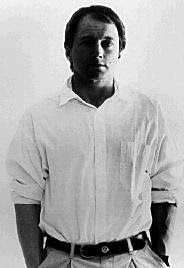Alain de Botton is a Swiss writer who tackles a variety of contemporary issues with a philosophical bent, from travel to love to status, referencing everyone from Plato to Zadie Smith in his writing. In this work, de Botton takes on the complexities and daily foibles of the modern workplace. When I picked up The Pleasures and Sorrows of Work in the hope of coming to a more sophisticated understanding of my parachute color, I was not expecting so much wit to be infused in his writing. de Botton incorporates elements of sociology and ethnography by choosing several subjects to shadow and interact with on the theme of work. From an accounting office to the countryside, he follows his subjects while shedding light on and and attempting to make sense of how our occupations and workplace can both nurture and damage our souls. de Botton writes about the increased distance from knowing the makers of products, the disconnect from nature and the customers we serve, and the increasing intangibility of production (pointing out that it used to be that one could "step back at the end of a day or lifetime and point to an object" and now how we more often produce "projects which long ago evaporated into nothing one could hold or see"). Some other great comments:
"We were now deep in the era of the technological sublime, when awe could most powerfully be invoked not by forests or icebergs but by supercomputers, rockets, and particle accelators. We are now almost exclusively amazed by ourselves."
About the field of logistics coordination (regarding strawberries, in particular), he writes, "An improbable number of grown-ups have been forced to subordinate their sloth, to move pallets across sheds and wait in rumbling diesel lorries in traffic to bow to the exacting demands of soft plump fruit."
"We might define art as anything which pushes our thoughts in important yet neglected directions."





























